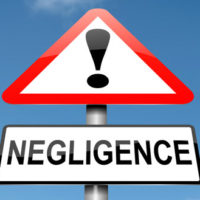Facts About Negligent Security In Florida

Florida law requires that commercial establishments provide a baseline level of safety for their patrons, and if they cannot provide that, it means that injuries and even fatalities may happen. If this does occur, the establishment or its owner may open themselves up to an accusation of negligent security. Negligent security is not only providing substandard security, but it may also include a failure to act after a reason to know of potential danger, and if you have been injured because of this, you may have a case to recover for your injuries.
Premises Liability & Negligent Security
The law of premises liability is the law that governs interactions between landowners and those who might come onto their land. There are three categories of visitors that might interact with landowners and business owners – (1) invitees, (2) licensees, and (3) trespassers. Generally, Florida law requires that a landowner or business owner uphold a certain duty of care toward those who might visit, depending on their category – for example, they are required to make their property safe for invitees, and to warn of any potential dangers.
Negligent security ties into the law of premises liability. A landowner or business owner has the obligation to make their property as safe as possible, and to warn of potential dangers that they cannot fix. For example, a nightclub owner might hire security guards, ensure the parking lot was well-lit, and install security cameras to cut down on the potential for violent crime. If a violent crime happens nonetheless, there will be many situations where a business owner will be absolved of liability as long as they can show that they fulfilled their duty to either make the site safe or to warn of potential dangers.
No Duty To Prevent Third-Person Crimes
Florida law holds landowners and business owners responsible for their own negligence via the law of premises liability; if they fail to make their property safe or to warn of any dangers, they can be found civilly liable. However, there is no law in Florida, as of this writing, requiring landowners to prevent crimes committed by a third person over which they have no control. After all, plain common sense says that it is simply not possible to foresee what another person might do to the point of frustrating their intentions.
That said, Florida law has repeatedly extended the duty to prevent foreseeable acts. If you are able to show that the owner of the location where you were injured was aware of the potential danger, but failed to take any action to remedy it, they may be liable for negligent security. Foreseeability is a fairly subjective standard, but objective evidence can be used to establish that an action was foreseeable – for example, statistics that show that parking lots are among the most common sites for violent crime against women might help to establish a likelihood of crimes against women happening in a specific location.
Call A Tampa Negligent Security Attorney Today
Negligent security can lead to serious injuries and even deaths. If you have been injured on someone else’s premises and you suspect it could have been averted by the owner’s actions, contacting an attorney who understands these types of cases is a crucial first step. The Tampa negligent security lawyers at the Rinaldo Law Group are ready and willing to assist you today. Call us for a free consultation.
Resource:
scholar.google.com/scholar_case?case=9650166848087006105&q=simms+v.+prime+hospitality&hl=en&as_sdt=40006
https://www.tampainjuryaccidentlaw.com/what-is-funeral-home-negligence/
